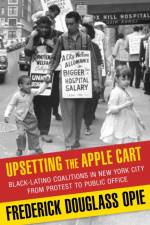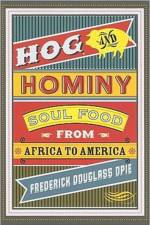- Soul Food from Africa to America
av Frederick Douglass Opie
265,-
Frederick Douglass Opie deconstructs and compares the foodways of people of African descent throughout the Americas, interprets the health legacies of black culinary traditions, and explains the concept of soul itself, revealing soul food to be an amalgamation of West and Central African social and cultural influences as well as the adaptations blacks made to the conditions of slavery and freedom in the Americas.Sampling from travel accounts, periodicals, government reports on food and diet, and interviews with more than thirty people born before 1945, Opie reconstructs an interrelated history of Moorish influence on the Iberian Peninsula, the African slave trade, slavery in the Americas, the emergence of Jim Crow, the Great Migration, the Great Depression, and the Civil Rights and Black Power movements. His grassroots approach reveals the global origins of soul food, the forces that shaped its development, and the distinctive cultural collaborations that occurred among Africans, Asians, Europeans, and Americans throughout history. Opie shows how food can be an indicator of social position, a site of community building and cultural identity, and a juncture at which different cultural traditions can develop and impact the collective health of a community.



